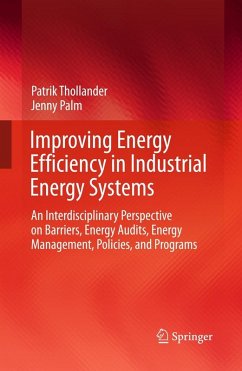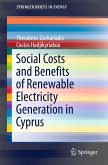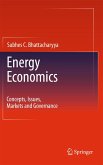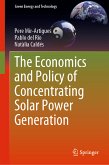Improving Energy Efficiency in Industrial Energy Systems applies an interdisciplinary perspective in examining energy efficiency in industrial energy systems, and discusses how "cross-pollinating"perspectives and theories from the social and engineering sciences can enhance our understanding of barriers, energy audits, energy management, policies, and programmes as they pertain to improved energy efficiency in industry.
Apart from classical technical approaches from engineering sciences, Improving Energy Efficiency in Industrial Energy Systems couples a sociotechnical perspective to increased energy efficiency in industry, showing that industrial energy efficiency can be expected to be shaped by social and commercial processes and built on knowledge, routines, institutions, and methods established in networks. The book can be read by researchers and policy-makers, as well as scholars and practicians in the field.
"This book is extremely valuable for anyone who is designing or executing energy efficiency policies, schemes or projects aiming at SMEs. Both authors deserve the highest respect, and the combination of their expertise makes the results truly unique." - Daniel Lundqvist, program manager at the Swedish Energy Agency
"For anyone interested in improving energy efficiency in industry, this is a must-read. The book combines tools from social science and engineering to discuss the state of art today as well as possible development path tomorrow. This is a compelling book thatI find useful both in my teaching and my research." - Kajsa Ellegård, professor at Linköping University, Sweden
"The book Improving Energy Efficiency in Industrial Energy Systems is a novel approach on how improved levels of energy efficiency can be reached in industrial energy systems by merging engineering with social sciences. It is with delight that I can recommend their book to anyone interested in the field."- Mats Söderström, director Energy Systems Program, Linköping University, Sweden
Dieser Download kann aus rechtlichen Gründen nur mit Rechnungsadresse in A, B, BG, CY, CZ, D, DK, EW, E, FIN, F, GR, HR, H, IRL, I, LT, L, LR, M, NL, PL, P, R, S, SLO, SK ausgeliefert werden.
Hinweis: Dieser Artikel kann nur an eine deutsche Lieferadresse ausgeliefert werden.









